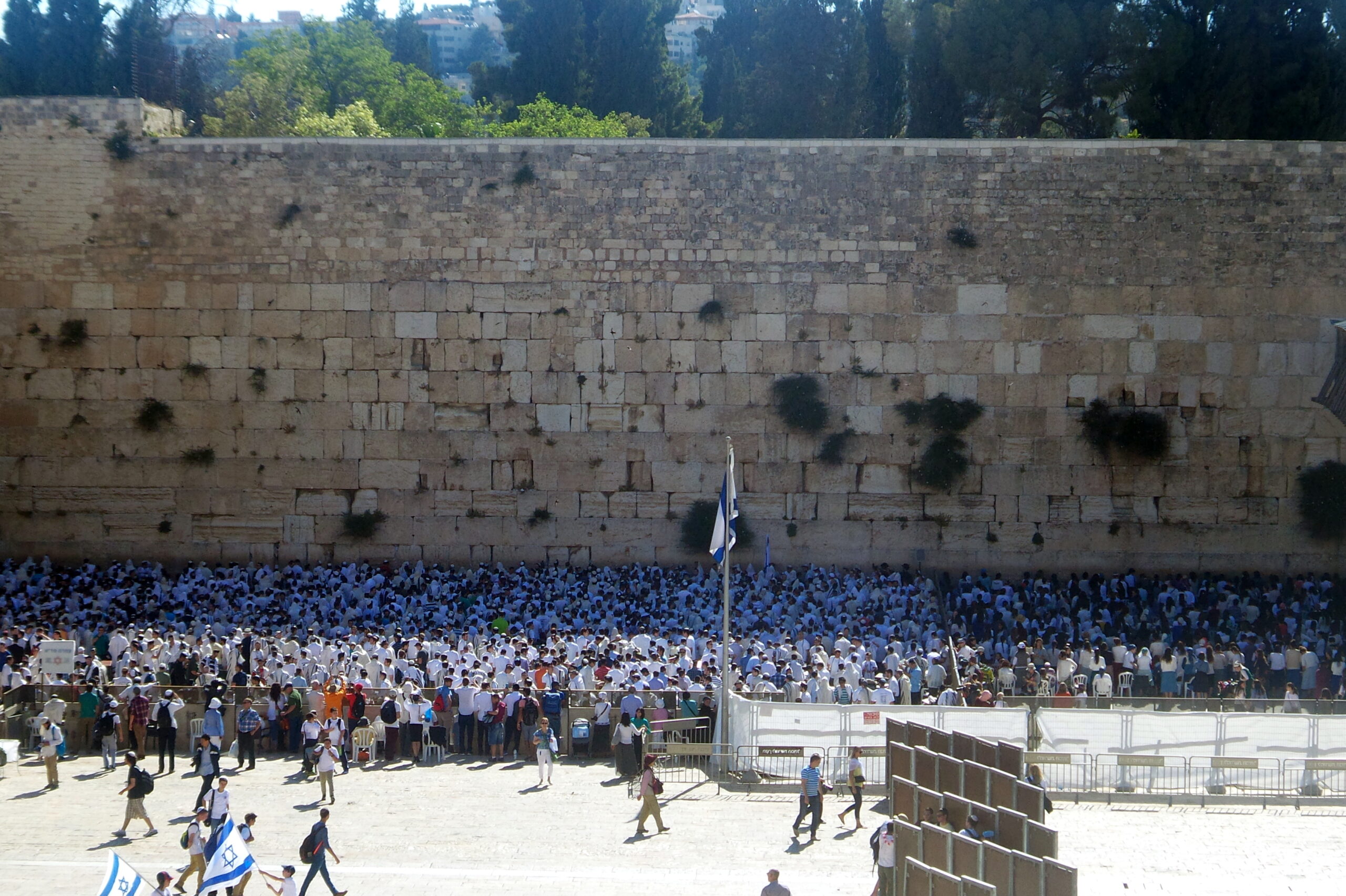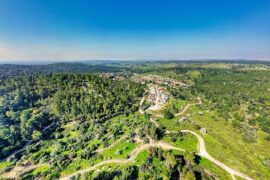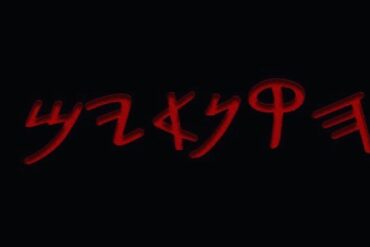Parshat Ekev opens and closes with ideas meant to condition the Jewish people towards properly fulfilling our national mission. Early in the Sidra, Moshe instructs Israel, saying “You will devour all the peoples that HaShem, your G-D, will deliver to you; your eye shall not pity them, you shall not worship their gods, for it is a snare for you.” (D’varim 7:16)
On this verse, the holy Ohr HaḤaim makes reference to a statement by King Shlomo that “showing compassion to the wicked is cruelty” (Kohelet 12:10).
He further explains that contrary to the opinion that displaying mercy is at all times a positive trait, our Torah teaches there to be situations in which compassion can actually be harmful. When facing the enemies of Israel, who are by definition the enemies of the Kadosh Barukh Hu (Rashi on Bamidbar 31:3), we must understand the need to don external traits of cruelty seemingly at odds with Israel’s inner nature.
Israel is tasked with bringing humanity to a state of perfection, self-awareness and total fulfillment in the knowledge of HaShem as the timeless ultimate Reality without end. This is achieved through the specific formula of establishing a “kingdom of priests and holy nation” (Sh’mot 19:6) that reveals and expresses the Divine Ideal in every sphere of life. The civilization we create is meant to set an inspirational example to the whole of humankind and to radiate kedusha to the world from Jerusalem.
Forces of spiritual darkness, personified throughout history as various human antagonists, have relentlessly sought to prevent the Jewish people from bringing the world to its ultimate goal. Divinely built into the system in order to challenge and push Israel to reach our potential, these forces work to sabotage the attainment of history’s goal by attempting to uproot Israel from our soil, separate the nation from our Torah or even eradicate the Jewish people altogether.
As Israel returns to independence in our land, the greatest concentration of spiritual impurity has gathered to extinguish the light our rebirth brings to the world. The Jewish return to our soil is not merely an attempt to achieve liberation for one people wishing to improve its own particular situation but is actually a Divine historic enterprise, universal in scope and essential for the benefit of all humankind. Israel’s national return to the world stage comes to clarify the meaning of history, as well as the essence and value of human existence.
The remedial light inherent in the blessing HaShem brings to humanity through Israel’s rebirth will heal the souls of those yearning for justice and human progress, in order to free them from a deficient world built on social contradictions and flawed notions of morality.
When nations engage in efforts to prevent this blessing from reaching humankind, Israel must recognize the need to harden our hearts and do what is necessary to advance our historic mission and shine G-D’s light to the world. The Hebrew patriarch Yitzḥak’s prophetic statement that “the voice is Yaakov’s voice but the hands are Esav’s hands” (B’reishit 27:22) reveals that although the savage traits of Esav are actually foreign to Israel’s inner essence, the Hebrew nation possesses the ability to wield Esav’s hands and adopt his brutal attributes for the sake of advancing the mission represented by Yaakov’s voice.
But even with the knowledge that our wars are wars to reveal HaShem’s Ideal to mankind, the question remains how Israel can possibly expect to stand strong in the face of the entire international community that demands we surrender the heart of our country. Would a strong and decisive Israeli leadership that remains loyal to the Jewish people’s aspirations and historic mission not provoke economic sanctions, diplomatic repercussions and even a possible invasion by multinational forces?
Moshe continues by saying: “Perhaps you will say in your heart, ‘These nations are more numerous than I; how will I be able to drive them out?’ Do not fear them! You shall remember what HaShem, your G-D, did to Pharaoh and to all of Egypt.”(D’varim 7:17-18)
Moshe assures Israel that such fearful “logic” is completely illogical when viewing reality and history through a holistic perspective. The Hebrews saw Egypt – the most formidable world power of its time – crushed by HaShem as we were liberated from bondage. When engaged in wars that the Creator Himself commands us to wage, it is reasonable to expect that He grant Israel success.
The Ibn Ezra teaches that fear of the nations should be submerged by fear of the Kadosh Barukh Hu. If one truly possesses a genuine awareness of HaShem as the infinite Whole in which we all exist, he will naturally view foreign leaders and their armies as trivial by comparison.
The Rambam explains that “Anyone who begins to feel anxious and worried in the midst of battle to the point where he frightens himself violates a negative commandment, as it is written (D’varim 20:3): ‘Do not be faint-hearted. Do not be afraid. Do not panic and do not break ranks before them.’ Furthermore, he is responsible for the blood of the entire Jewish nation. If he is not valiant, if he does not wage war with all his heart and soul, it is considered as if he shed the blood of the entire people, as (D’varim 20:8) states: ‘Lest he demoralize the hearts of his brethren as his own.’ Similarly, the prophetic tradition explicitly states: ‘Cursed be he who withholds his sword from blood’ (Yermiahu 48:10). By contrast, anyone who fights with his entire heart, without fear, with the sole intention of sanctifying G-D’s Name, may be assured that he will come to no harm, nor will evil overtake him. He will be granted a well-rooted family in Israel and gather merit for himself and his children forever. He will also merit eternal life in the World to Come, as Shmuel I 25:28-29 states: ‘HaShem will certainly make my lord a faithful house, for my lord fights the wars of G-D and evil will not be found with you… and my lord’s soul will be bound in a bond of life with G-D.’” (Hilkhot Melakhim 7:15)
The more we strengthen our awareness of ourselves and our antagonists as not only all existing within the greater Reality we call HaShem but also playing essential parts in the historic drama of humankind, the easier it becomes for us to fearlessly march forward in implementing the Divine Will. If we understand that fulfilling our role in history requires us to attain independence in our land, we should not allow ourselves to be deterred by the potential reactions of the various players on the world stage. Attaining a more holistic perspective actually focuses our energies on revealing HaShem’s Ideal through advancing the Jewish people’s national aspirations.
There is an unfortunate situation today in which not all the Jewish people consciously share our collective yearnings. A fragmented approach to the study of Torah has caused mitzvot concerning issues central to the Hebrew mission to often seem irrelevant to many Diaspora Jews. And while such Jews can be meticulous in their observance of personal commandments, they must be careful not to detach themselves from the national story of the Jewish people. The end of Parshat Ekev challenges this erroneous fragmented approach and reveals that not only national precepts but also even personal mitzvot are indeed largely irrelevant outside the land of Israel.
“Then the wrath of HaShem will blaze against you; He will restrain the heaven so there will be no rain, and the ground will not yield its produce; and you will be swiftly banished from the goodly land that HaShem gives you. You shall place these words of Mine upon your heart and upon your soul; you shall bind them for a sign upon your arm and let them be an ornament between your eyes.” (D’varim 11:17-18)
On verse 18, Rashi quotes our Sages (in Sifre Ekev 43:17), who explain that the juxtaposition to the threat of exile in the previous verse teaches that Jews must continue to observe Torah commandments even in the exile so that when we return to our borders they will not be new to us.
This suggests that the only value for Israel practicing mitzvot in the Diaspora is to prevent us from forgetting how to perform them when we come home. The Ramban further elaborates on this concept (in his commentary to Vayikra 18:25), explaining that the Torah is meant to be observed specifically in Eretz Yisrael. The halakhic obligation to observe Torah law exists regardless of a Jew’s geographic location but the mitzvot only fulfill their true Divine function when performed within our borders.
Every mitzvah is like a faucet that, when opened, releases Divine blessing into our world and elevates it to a level beyond where it previously existed. These faucets, however, must be connected to the correct plumbing in order for this blessing to successfully flow through them. The Torah, which was given to Israel to be performed specifically in our land, is connected to the plumbing of Eretz Yisrael.
A Jew who performs mitzvot outside the land of Israel is essentially turning on a faucet not connected to any pipe. No blessing flows through. The physical act was completed but not according to the Torah’s instruction. A Jew practicing mitzvot in the exile may be performing the ritual precepts but he is not enhancing Creation on any spiritual plane. There are no pipes behind his actions because the full expression of HaShem’s Torah is only realized when performed within the land of Israel (as nearly the entire Book of D’varim instructs).
The Torah mandates that Israel live a collective life of kedusha as an independent nation in our land. And we must be ready to fight valiantly against any and all who seek to prevent our people from actualizing this goal. At times this fight manifests itself as a war of ideas and at other times as an actual military campaign against those scheming to extinguish our light.
As Jewish national aspirations are actually directed towards achieving universal objectives for all humankind, our most central concern when embarking on a milḥemet mitzvah (obligatory war) should be advancing our mission of ultimately uniting humanity in the knowledge of HaShem. The establishment of a civilization built on the foundation of Israel’s Torah will serve as a “light unto nations” and bring all of Creation to perfection through Malkhut Yisrael. And only through the revival of Hebrew civilization will HaShem’s Ideal be revealed in every sphere of human existence.





